Hundreds of French protesters, as young as 12, awaiting trial
The police killing of 17-year-old boy Nahel Merzouk during a traffic stop in late June triggered protest marches and nights of disorder across France.
In his first TV interview since the unrest the French president, Emmanuel Macron, condemned what he called the indescribable violence of the clashes on the streets, stressing that France needs a return to authority at every level.
The embattled president also blamed what he called 'poor parenting' as part of the reason teenagers had taken to the streets.
He said of those arrested an overwhelming majority have a fragile family framework, either because they come from a single parent family or their family is on child support benefits.
The French president, however, did not address concerns from rights groups, that the protests reflected deep anger over racism and discrimination in law enforcement.
In his long interview he also failed spectacularly to mention quick-fire trials of teens as young as 12 years of age.
On June 30th, following three nights of violence, 45,000 police officers were deployed to quell the unrest; almost four times more than the number deployed during the protests against pension reforms earlier this year.
And in response to Brussels' concerns over police violence, Paris, the self proclaimed champion of human rights had just one answer; it’s none of your business.
France deploys 45,000 troops to quell police brutality protests.
In the words of French State Secretary for Europe, Laurence Boone, "It is not up to the European Commission to take an interest in the way France manages its police force".
The United Nations Human Rights Office said the unrest showed that it was time for France to reckon with its history of racism in policing, rather than just lash out in punishment.
The Human Rights Office said the French government needed to ensure that the use of force always respects the principles of legality, necessity, proportionality, non discrimination, precaution and accountability.
But many French lawmakers are demanding maximum punishment and fast.
Olivier Marleix, a lawmaker from the conservative Republicans party, has called for all the cases involving the unrest to be handled within 100 days. He said “not to punish this would be an injury to all our law enforcement. Not to punish this would be a failure to understand the gravity of the threat to France”.
After flooding the streets with police officers, night after night, the French State sent the second harsh message.
The French Justice Minister, Eric Dupond-Moretti, advised prosecutors to systematically seek prison sentences for people charged with physical assault or serious vandalism.
He told France Inter radio on July 3, "I want firmness. I also want to get parents attention in two ways. First, we need to talk about public morals. Ladies and gentlemen, pay closer attention to your children. Second, we need to remind parents that when they are so careless as to threaten their children's education, health and security. It's an offense that's punishable by up to two years in prison and a 30,000 euro fine".
Subsequently, nearly 4000 people were arrested over the next five days, a third of whom were minors with an average age of 17.
The justice system is now running almost around the clock to process the cases, many of which are being funneled through hasty trials known as immediate appearance. Lawyers reportedly have just 30 minutes to prepare and cases often end in prison time.
On paper the accused have the option to delay the hearing to better prepare with court appointed lawyers, but few take it mostly because they would be waiting in jail.
As information about those arrested and tried over the riots is limited, especially for cases involving minors, it’s estimated that over 700 people have been jailed in such trials in recent weeks, with an average sentence of 8.2 months.
Since minors cannot undergo immediate appearance trials in France, children's courts will deal with their cases in the coming month.
According to a revelation by openDemocracy, many of the defendants are boys and young men of color from poor areas.
Other media reports of hasty trials across the country have confirmed that many of those being tried are young and in situations of poverty, with some experiencing homelessness or lacking legal immigration status.
According to the Financial Times, about 60% of those arrested had no criminal record while at least 380 people have already been sentenced to prison in these immediate appearance trials.
Critics warn against harsh punishments for young, mostly first time offenders, in what they consider to be a judicial crackdown and the arrest of teenagers. Many of them will now be sent to the already overcrowded prisons in France.
Figures released recently by the Interior Ministry showed that the number of detainees had reached a historic high of 73,699 on June 1, which is about 16,000 above capacity.
Several defense lawyers representing clients taking part in these immediate appearance cases said they feared it could lead to unwarranted sentences.
Days after the tragic 'murder' of Nahel and the ensuing unrest, the streets look calmer, but the courts are going into overdrive.
Swift sentences may have helped quell further rioting, but seem unlikely to really solve the problem.
Simply put the trials are just a form of retribution against the disadvantaged youth who have risen up against the systematic injustice in France.
VIDEO | Tehran residents condemn US-Israel orchestrated mosque arson, vandalism
VIDEO | South Koreans demand end to joint US military drills and provocative policy against North Korea
VIDEO | A silent grief: Palestinian man struggles to recover remains of wife, children
Hind Rajab Foundation files complaint against Israeli genocidal propagandist in US
VIDEO | Trump fighting allies on Greenland
Iran FM: Selective respect for deals now haunting Europe
Arab rights group urges UK to sanction Netanyahu over 'incitement to genocide' in Gaza
‘Political, non-constructive’: Iran slams UNHRC special session on recent riots


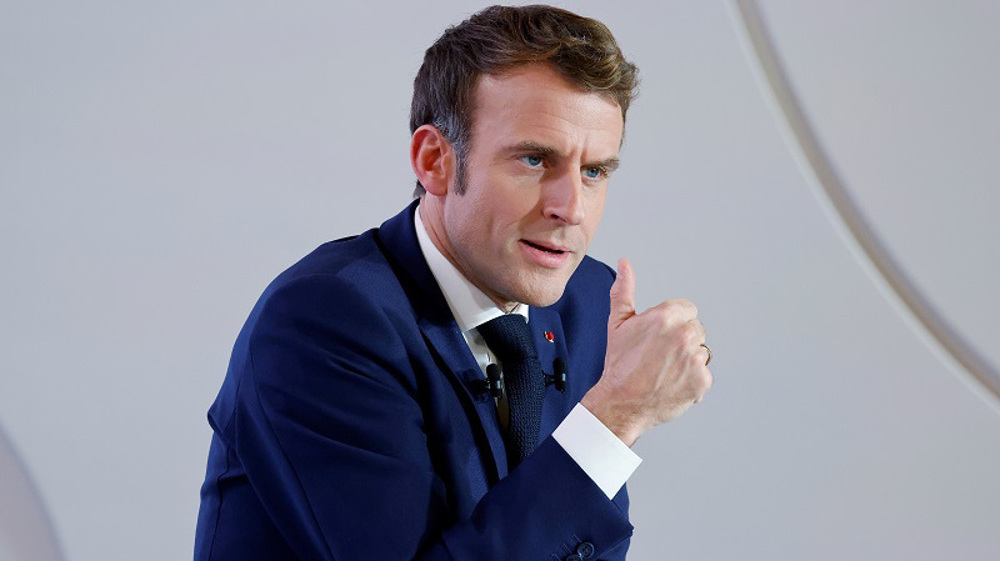
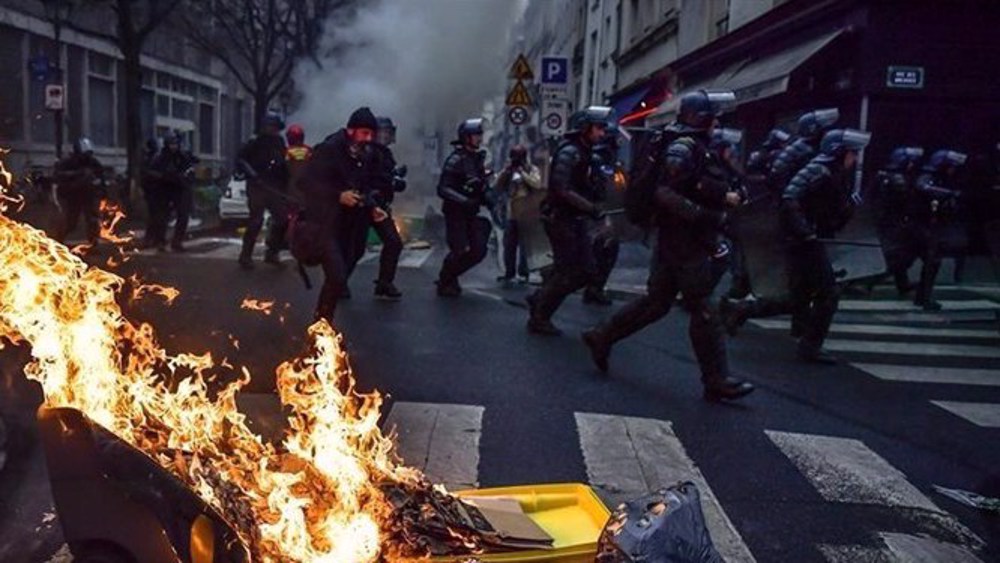
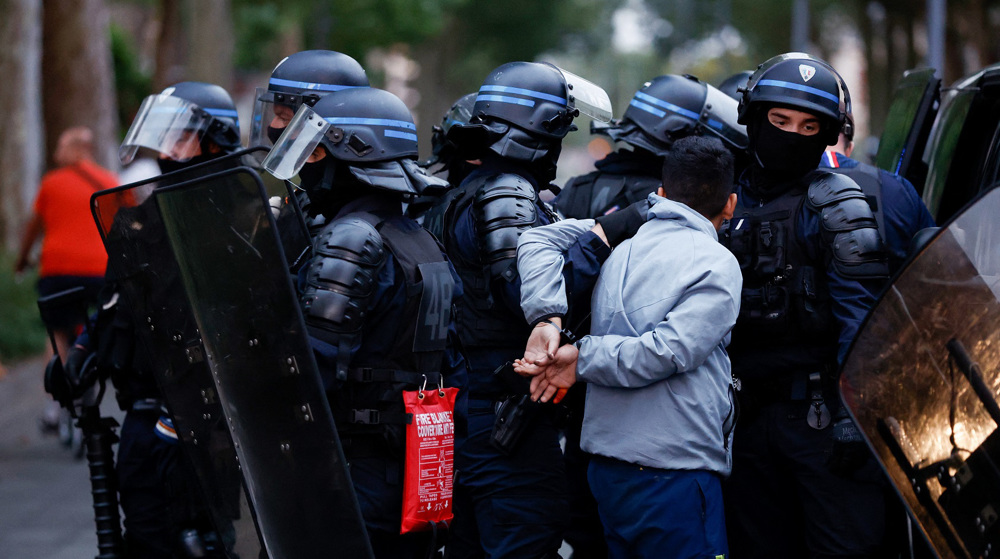
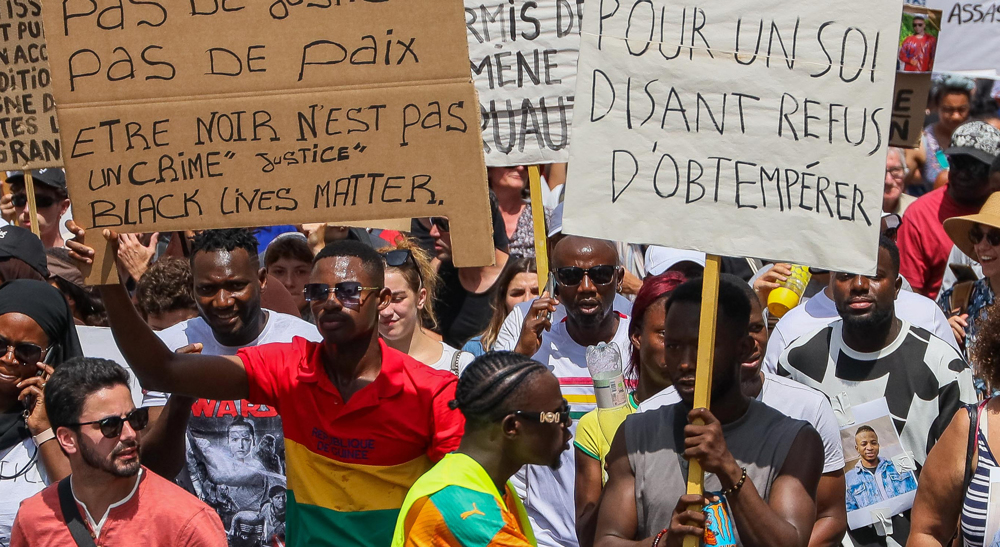
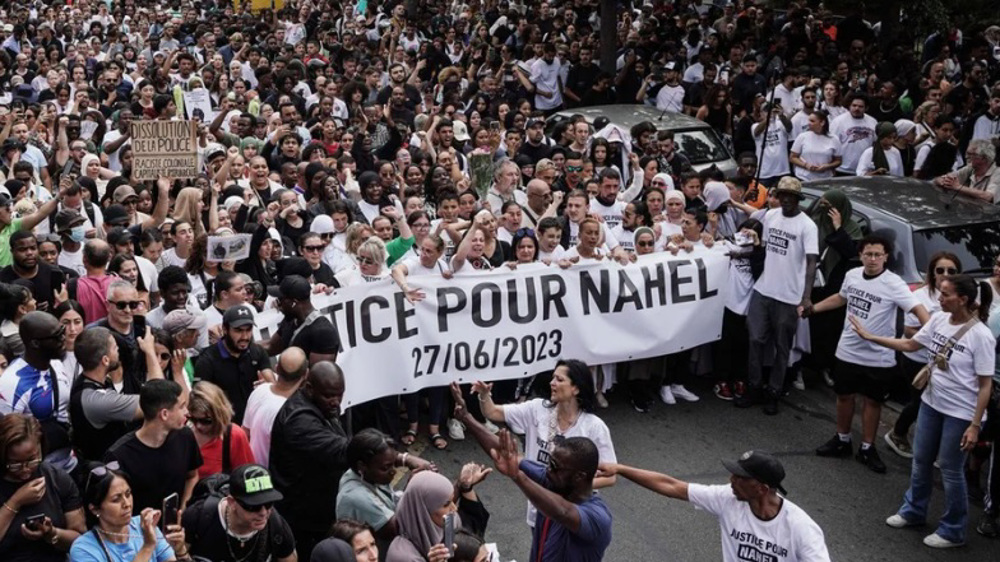
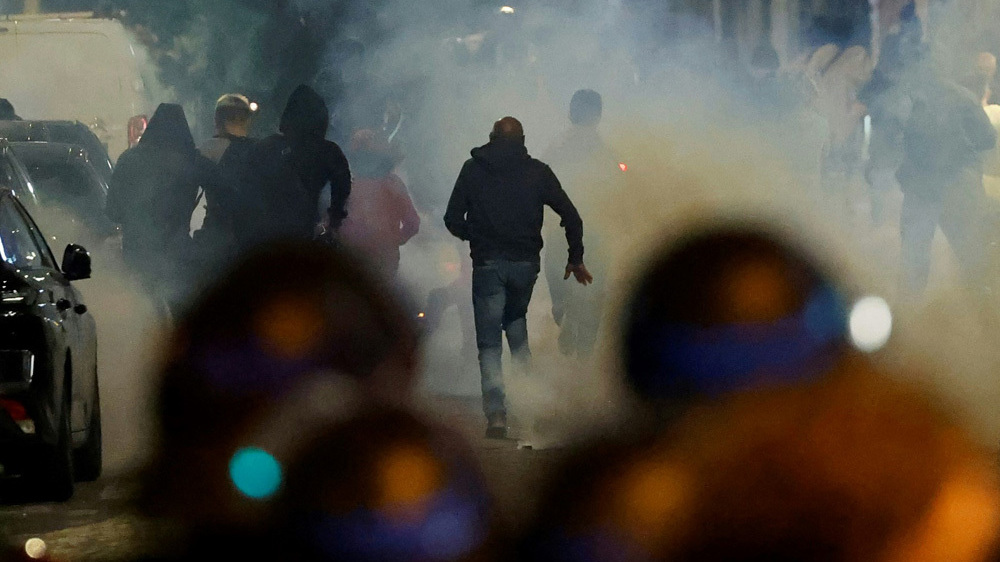
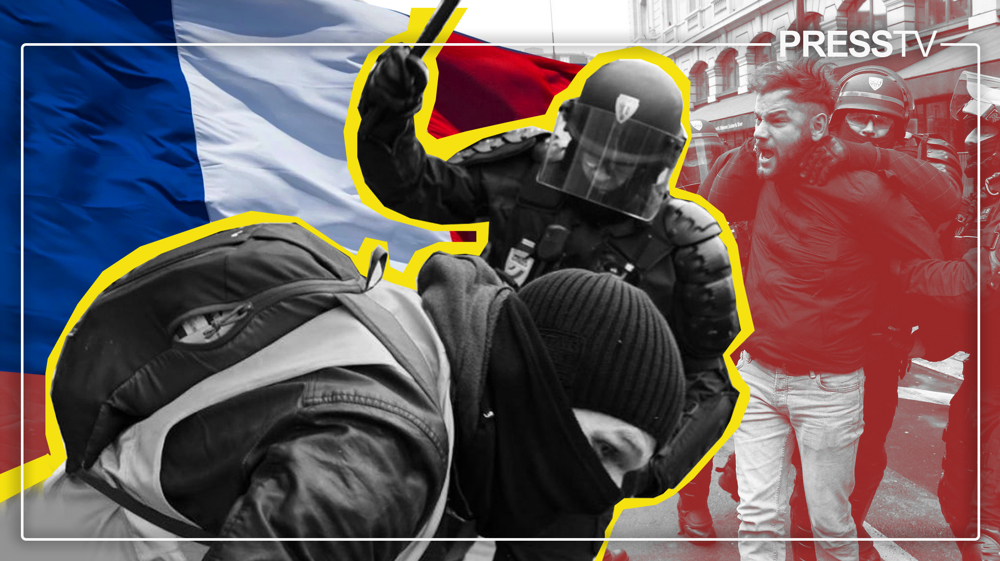
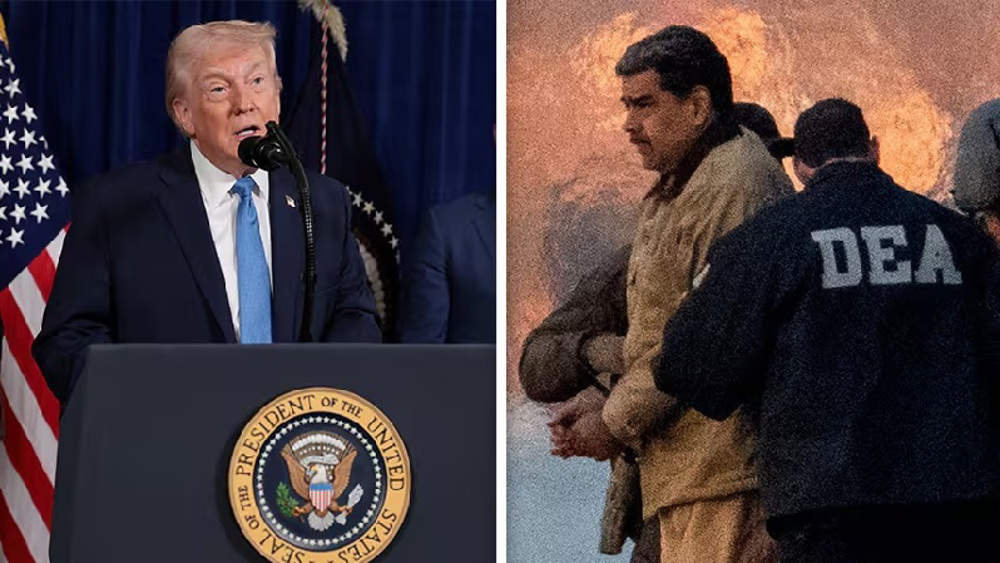
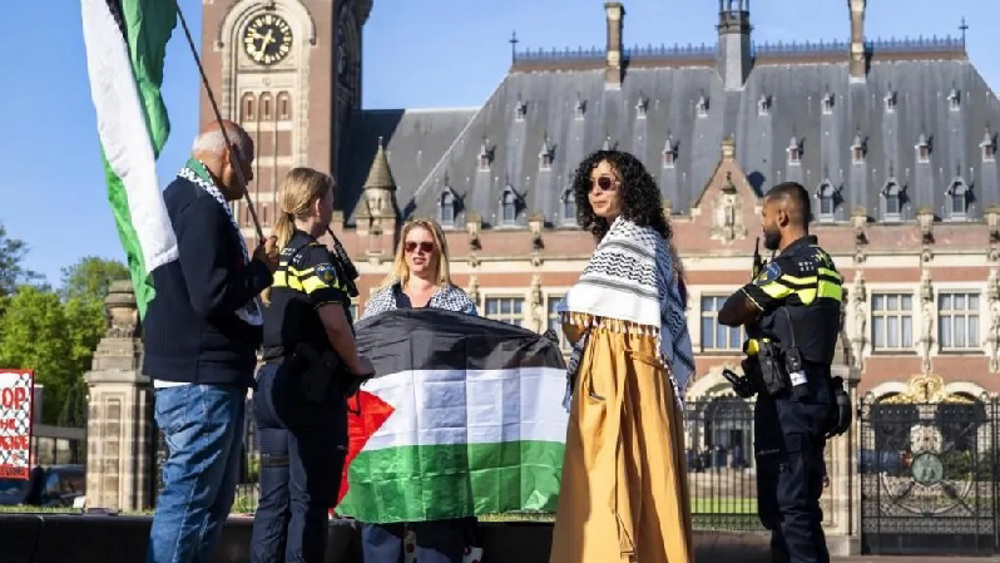
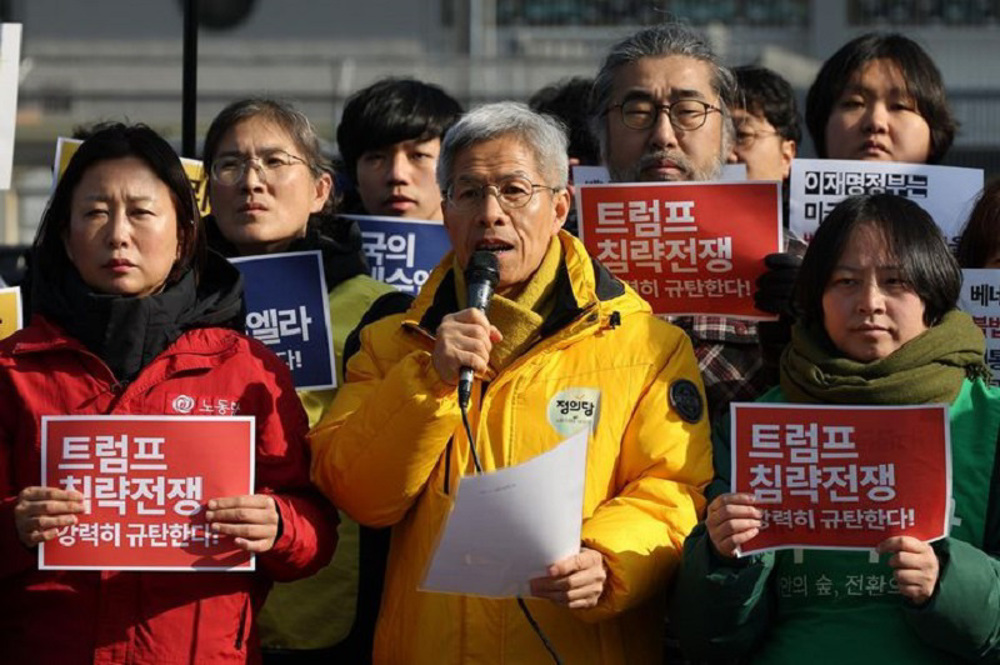



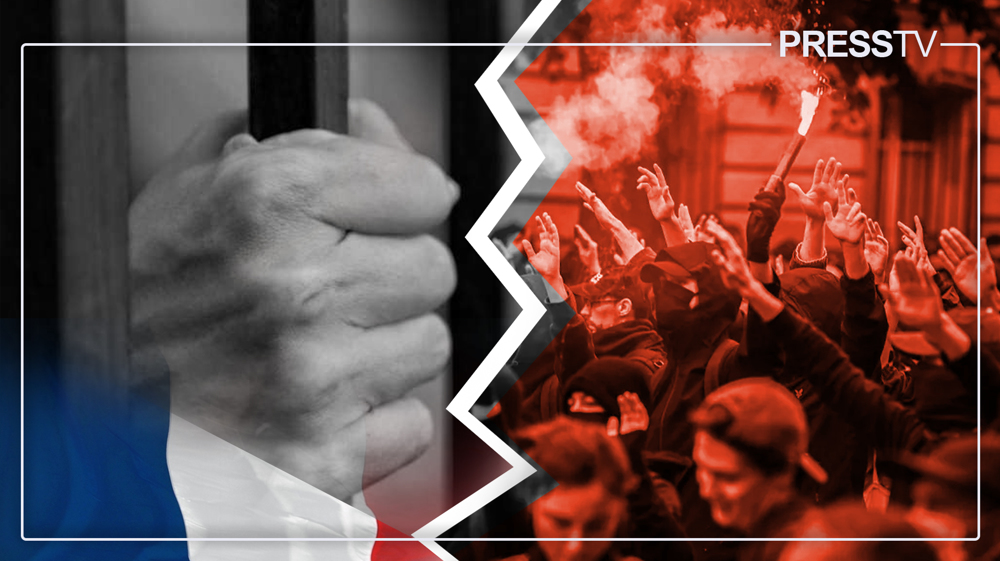
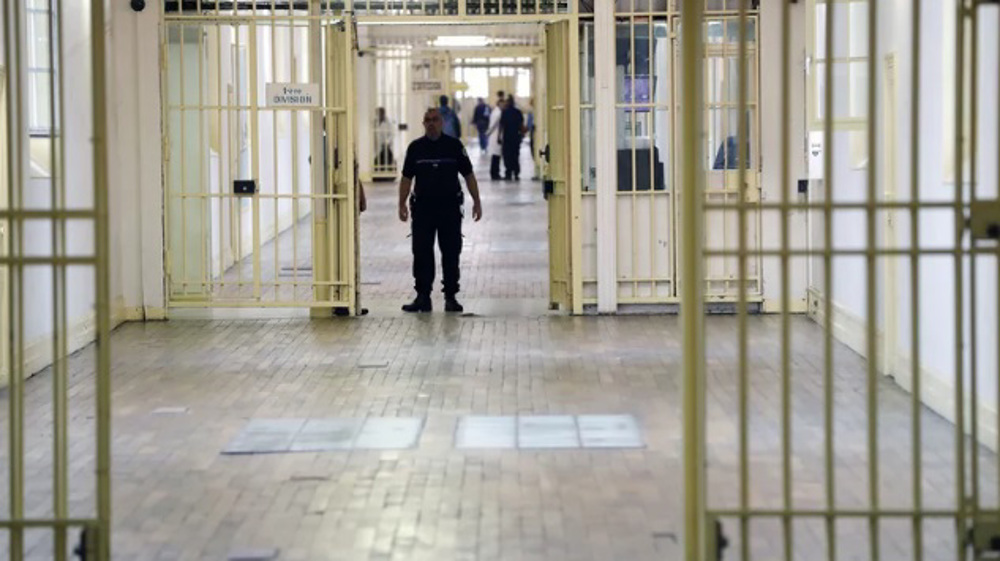
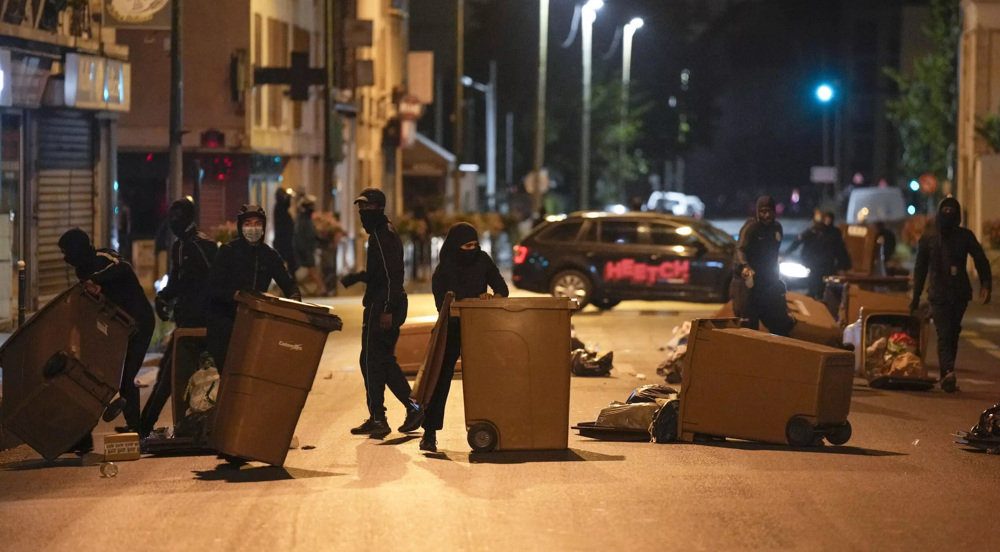
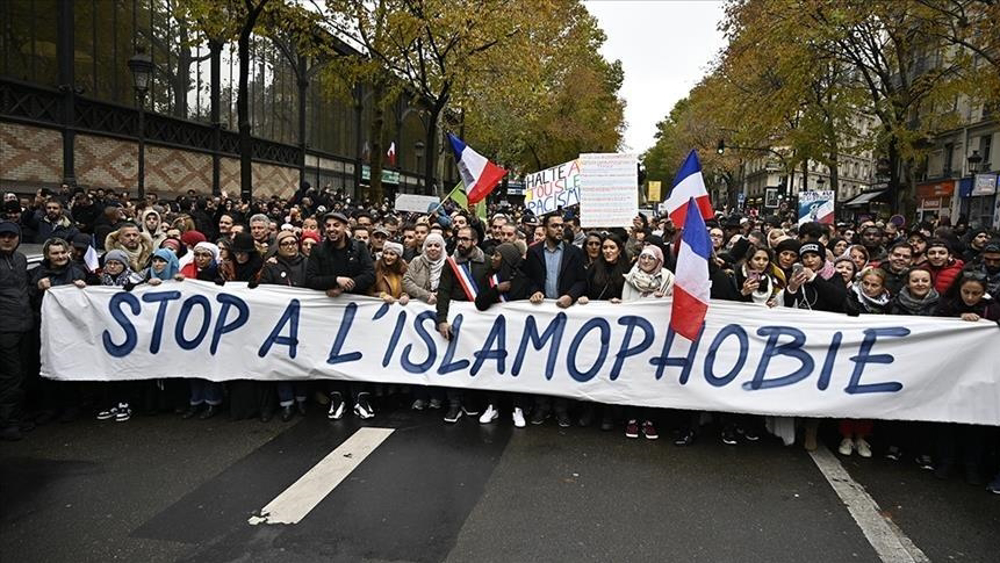
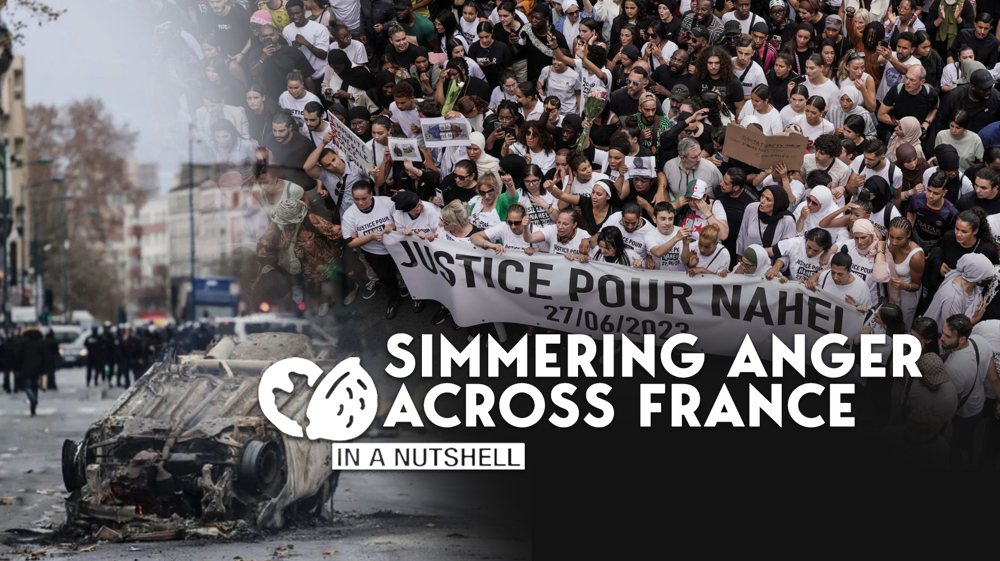
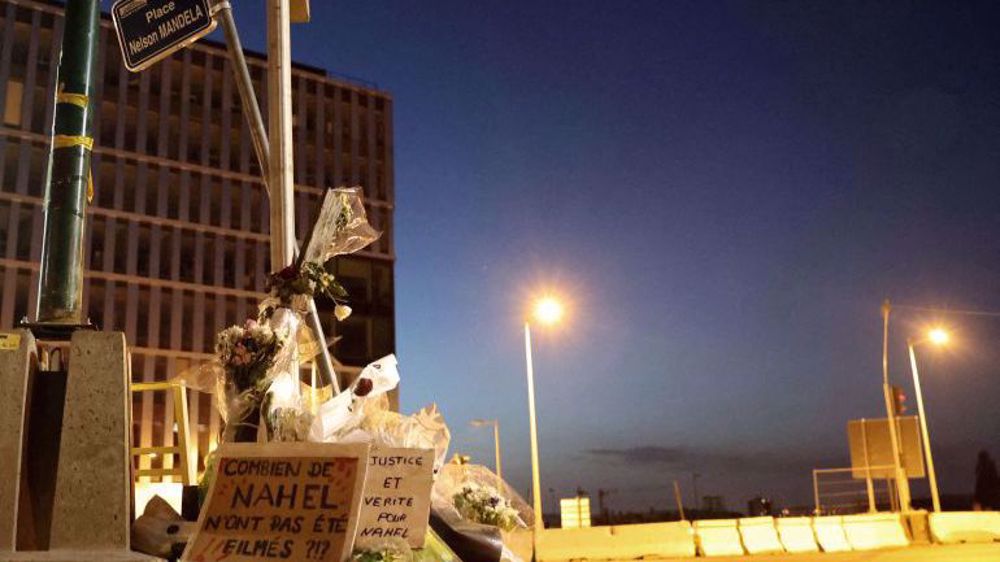
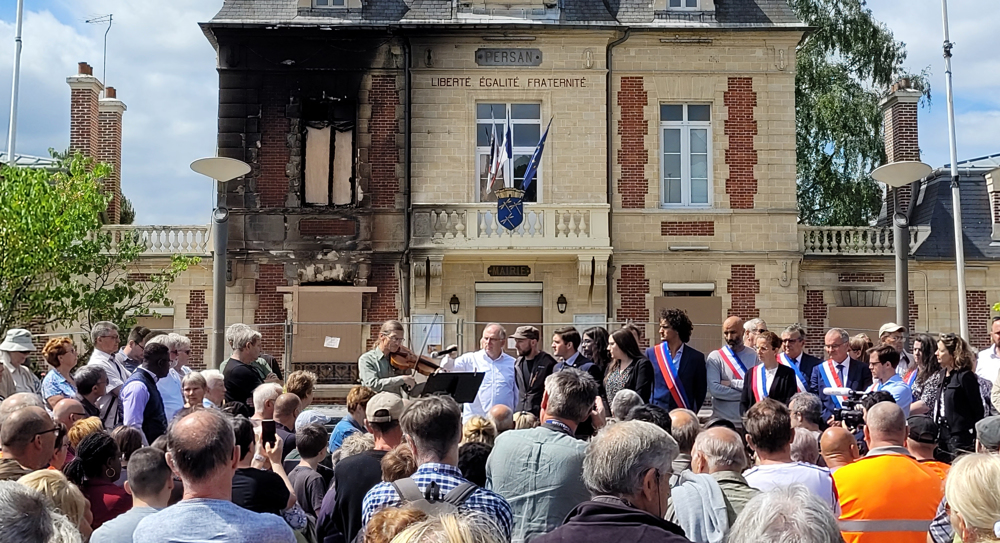
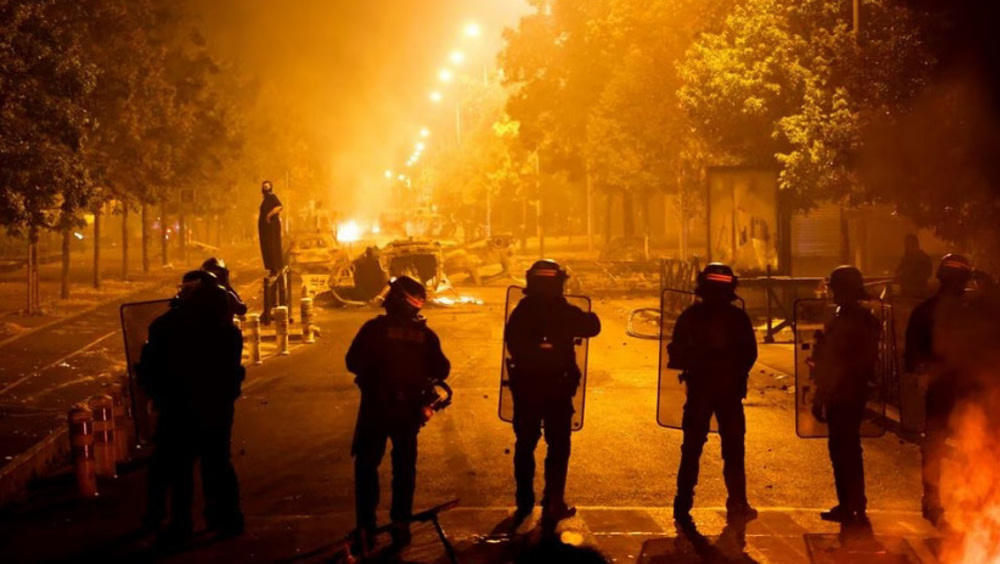

 This makes it easy to access the Press TV website
This makes it easy to access the Press TV website